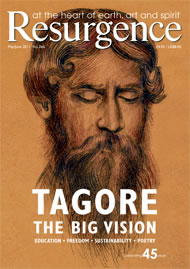You may well be wondering having read the title of this article, what has evolution has to do with leadership development?
The answer is everything!
According to scientists, everything that exists in our world began 14 billion years ago with a “Big Bang.” After that, it was all about evolution; the evolution of energy into matter; matter into living organisms; living organisms into creatures.
Physical (atoms, cells and creatures) and cultural entities (clans, tribes, communities and nations) continue to exist in the world for two reasons – (a) they have learned how to become viable and independent in the framework conditions that define their existence, and (b) they have learned how to adapt their way of being when their framework conditions have become “life” threatening. This applies to atoms, cells, human beings, and all their group structures - molecules, organisms, organisations, communities, and nations. All of evolution is based on these two principles.
Thus, we can state that from an evolutionary perspective the purpose of all adaptation is to attain, maintain or enhance the internal stability and external equilibrium of an entity in the framework conditions that define its existence.
In order to maintain internal stability and external equilibrium and continuously evolve, entities must be conscious of the changes that are occurring in the framework conditions (both internal and external), and able to adapt to those conditions in a life affirming way. In order to do this they must be conscious.
From an evolutionary perspective, consciousness can therefore be defined as ‘awareness with a purpose’, and the purpose of every physical entity; whether an atom, molecule, cell, organism, creature, human being, organisation or nation is to attain, maintain, or enhance its internal stability and external equilibrium.
When we look more closely at the evolution of atoms into cells, and cells into human beings, we can identify three universal stages of evolution.
Stage 1: Individual entities must first learn how to become viable and independent in the framework conditions that define their existence. If an entity is unable to become viable and independent it will perish.
Stage 2: As an entity’s framework conditions become more complex and threatening, it must either learn how to become more resilient or learn how to bond with other compatible entities to form a more resilient group structure.
Stage 3: As a group structure’s framework conditions become more complex and threatening, it must either learn to become more resilient or learn how to cooperate with other compatible group structures to create more resilient higher order entity.
This is how atoms evolved into molecules, molecules evolved into cells, cells evolved into organisms, organisms evolved into creatures, and how one creature - Homo sapiens - is evolving through clans, tribes, and nations to create a new higher order entity called humanity.
So why is this important at this time in our evolutionary history?
It is important because the framework conditions that we are now experiencing and have contributed to creating are potentially life threatening, not only to the species Homo sapiens but to many other species also. We have reached a point in time when we must either evolve as a species or perish. We will only be able to do this if we can put aside our narrow self-interest, focus on the whole system, and build a values-driven framework of policies that support the common good.
Our business leaders need to step up to this challenge. They need to recognise that business is a wholly-owned subsidiary of society and society is a wholly-owned subsidiary of the environment. Business can only thrive and prosper in a world where people live at peace with each other and where we all live in harmony with our planet Earth. If the life-support systems of Earth are not preserved, not only will our human society perish, but our economy will disintegrate, too. Building a sustainable future for everyone is not just societal imperative. It is business imperative, too. Business needs to set an example by identifying, developing, and promoting leaders who display positive self-interest with regard to the organisation, but do so within a framework of overarching policies that supports the common good of our global society and its life support systems.
Our political leaders also need to step up to this challenge. They must give up their parochial self-interest and exaggerated false belief in national sovereignty. They must move beyond the narrow self-interest of their nations and embrace the global common good. The problems of existence we now face are global, but the systems and structures we have for dealing with them are mostly national. The only way we can solve our current problems of existence is through international cooperation and collaboration and new system of global governance.
What is being called forth in business and politics is a global paradigm shift. It’s a shift from a world focused on self-interest to a world focused on the common good. It’s a shift from “what’s in it for me” to “what’s best for humanity and the planet.” Ultimately, the problems of existence we now face are issues of consciousness, and the crisis we face is a crisis of leadership. For evolution to continue we need a new leadership paradigm. And if we are going to be successful as a species, we must model our leadership development programmes on the three universal stages of evolution.
Stage 1 of leadership development should begin with learning how to lead yourself. You must first become a viable independent conscious individual before you can lead others. You must learn how to individuate and self-actualize.
Stage 2 of leadership development involves learning how to bond with others to create a viable independent and internally cohesive group structure—in organisational terms a team, a unit, or a department, and in societal terms a community.
Stage 3 of leadership development involves learning how to enable viable independent group structures to cooperate with other viable independent group structures to create a higher order entity—in organisational terms, a company or institution, and in societal terms a nation.
From the perspective of international politics we must go even further. We must first enable a critical mass of individuals in every nation to become viable and independent -individuate and self-actualize. We must then learn how to form internally cohesive nations. Then we must find ways to enable nations to cooperate with each other to create a higher order entity called ‘humanity.’
The New Leadership Paradigm Learning System
In order to address the current leadership crisis, the Barrett Values Centre has created a world-class, evolutionary, leadership development programme that is available to everyone on the planet.
There are three components to the New Leadership Paradigm learning system. The book—The New Leadership Paradigm: the web site—newleadershipparadigm.com; and, the new leadership paradigm Workbooks and Journals for Leading Self, Leading Others, Leading an Organisation and Leading in Society. The workbooks and journals are downloadable from the web site. The exercises in the workbooks can be self-administered or facilitated by a trainer. They can be used by individuals, or groups. They can be form part of an organisational leadership development system or they can be used in coaching. They can be used by civil servants, community groups, NGOs or business professionals, and they can also be integrated into university leadership or business school courses.
The most significant difference between the New Leadership Paradigm learning system and other leadership programmes is that it enables you to measure the evolution of your personal consciousness, the consciousness of your group, the consciousness of your organisation or the consciousness of your community or nation. This is important, because whatever you can measure, you can manage. The time has come to manage the evolution of our personal and collective consciousness so that we can consciously create the future we want to experience—a future that ensures the sustainability of humanity and the planet.







